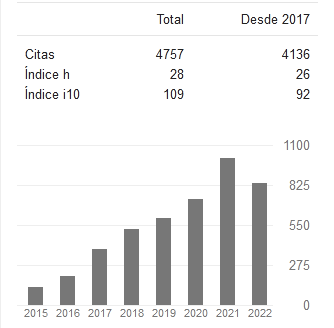ALTERNATIVE TO TRAIN SPANISH SPEAKING MATH TEACHERS FOR TEACHING IN ENGLISH SPEAKING COUNTRIES
Palabras clave:
Matemática; enseñanza; contextualización.Resumen
Teacher Training and Teacher Development for specific purposes is a priority in Foreign Language Pedagogy. Cuban Mathematics teachers have provided methodological counseling in English language, or assumed the teaching-learning of Mathematics in institutions of Africa and the Caribbean. These teachers should be able of adequately manage such internationalist and collaboration missions. However, there are limitations related to their pedagogical training to cope with the syllabus according to dissimilar contexts, because training programs have been focused on English language as the only subject of knowledge. This paper aims to introduce an alternative to train Cuban Spanish-speaking Mathematics teachers for potential collaboration in English-speaking countries, based on typical activities related to characteristics of the target countries and objectives of the kind of schools. In this regard, several shortcomings were highlighted and the contextualization was undertaken, based on the articulation of interactions according to the contextual reality. The essence of the proposed solution consisted in using several curriculum organizers for planning the teaching-learning process, with an integral pedagogical diagnostic as background, making use of the experiences of teachers who have been collaborating in English-speaking countries. In order to access the sources for data collection it was applied the experimental method, with a pre-experimental design because no control groups were available. The sample was a set of Math and Physics teachers trained at the University of Las Tunas, through postgraduate courses, to teach Mathematics in English language. The quality of their performance as Math teachers was enhanced, for potential collaboration in such countries.
Descargas
Publicado
Cómo citar
Número
Sección
Licencia
Derechos de autor 2020 Michel Enrique Gamboa Graus

Esta obra está bajo una licencia internacional Creative Commons Atribución 4.0.
Usted es libre de:
- Compartir — copiar y redistribuir el material en cualquier medio o formato
- Adaptar — remezclar, transformar y construir a partir del material para cualquier propósito, incluso comercialmente.
Bajo los siguientes términos:
- Atribución — Usted debe dar crédito de manera adecuada, brindar un enlace a la licencia, e indicar si se han realizado cambios. Puede hacerlo en cualquier forma razonable, pero no de forma tal que sugiera que usted o su uso tienen el apoyo de la licenciante.
- No hay restricciones adicionales — No puede aplicar términos legales ni medidas tecnológicas que restrinjan legalmente a otras a hacer cualquier uso permitido por la licencia.













































